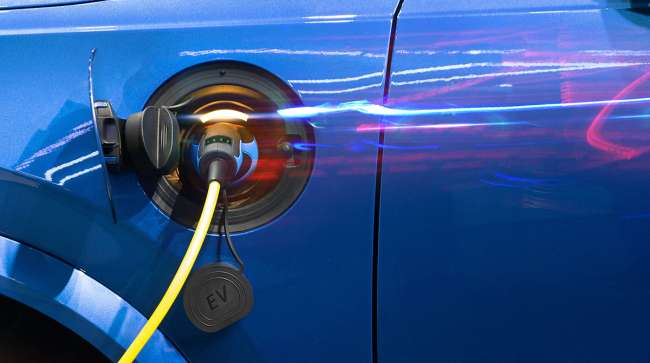Senior Reporter
Fuel-Efficient Tech Available for Trucks Via Proposed Legislation

[Stay on top of transportation news: Get TTNews in your inbox.]
Legislation that would establish a program at the U.S. Department of Energy to assist the trucking industry with the adoption of fuel-efficient technologies recently was introduced in the U.S. House of Representatives.
Rep. Rodney Davis (R-Ill.), his caucus’ top surface transportation policymaker in the U.S. House of Representatives, recently unveiled the Supporting Trucking Efficiency and Emission Reductions, or STEER, Act. The bill aims to support the trucking industry with purchasing and installing fuel-saving technologies.
Specifically, the legislation would set up a five-year, $500 million voucher program at the U.S. Department of Energy to cover certain costs associated with the adoption of fuel-efficient technologies for commercial motor vehicles.

Davis
Under the program, companies applying for a voucher would need to provide an estimated installation cost of emission-reducing active technologies, among other requirements. Technology that would qualify under the program pertains to physical alterations of a Class 8 truck installed as a retrofit. These include aerodynamic, dynamic axle lift control, and other emerging improvements. According to the legislation, “A voucher under the program may be made to an individual, a state or local government, a private entity, a not-for-profit entity, a nonprofit entity or other applicants as deemed appropriate by the secretary.”
Additionally, the secretary of energy would be required to report to Congress on the program’s progress, and provide details about the number of vouchers awarded for emission-reducing active technologies. The bill’s sponsor emphasized its goal is to facilitate improvements of Class 8 fuel efficiency.
Voucher Class8 by Transport Topics
“We can reduce fuel consumption and emissions in the transportation industry without enacting costly environmental mandates on American companies and workers,” Davis said this month. He is the ranking member of the transportation committee’s Highways and Transit subpanel.
He continued, “That’s why I’m introducing the STEER Act. It’s common-sense, market-driven ideas like my legislation, not heavy-handed policies from Washington, that will protect American workers and our environment without destroying our economy.”
The bill was referred to the Energy and Commerce Committee. Its consideration at committee-level has yet to be scheduled.

Burrows
A stakeholder endorsing the legislation is TruckLabs, a California-based firm claiming to be dedicated to assisting the industry in achieving efficiencies and sustainability. “The STEER Act is rocket fuel for American innovations which help the trucking industry become cleaner and more efficient,” CEO Daniel Burrows said in a statement that accompanied the bill’s introduction.
“These innovations help all fuel types, so we can reduce diesel truck emissions today, while also paving the way to an alternative fuel future. Every dollar saved on fuel goes back into the pocket of truck fleets so more efficient trucks are a win for all involved,” he added.
Earlier this year, Davis and his Republican colleagues on the transportation policy committee, unveiled legislation that would authorize $400 billion over five years for highway programs. This Surface Transportation Advanced Through Reform, Technology and Efficient Review, or STARTER, Act 2.0 would extend or establish programs linked to highway funding, autonomous vehicle and the trucking workforce, among other proposals. The bill also would seek to streamline parts of the federal environmental permitting process.
During the bill’s introduction in May, Davis said, “Streamlining the federal permitting and environmental review process absolutely must be a part of an infrastructure package.”
The Republican highway bill has not been advanced by the House’s Democratic leadership.
Want more news? Listen to today's daily briefing below or go here for more info:




